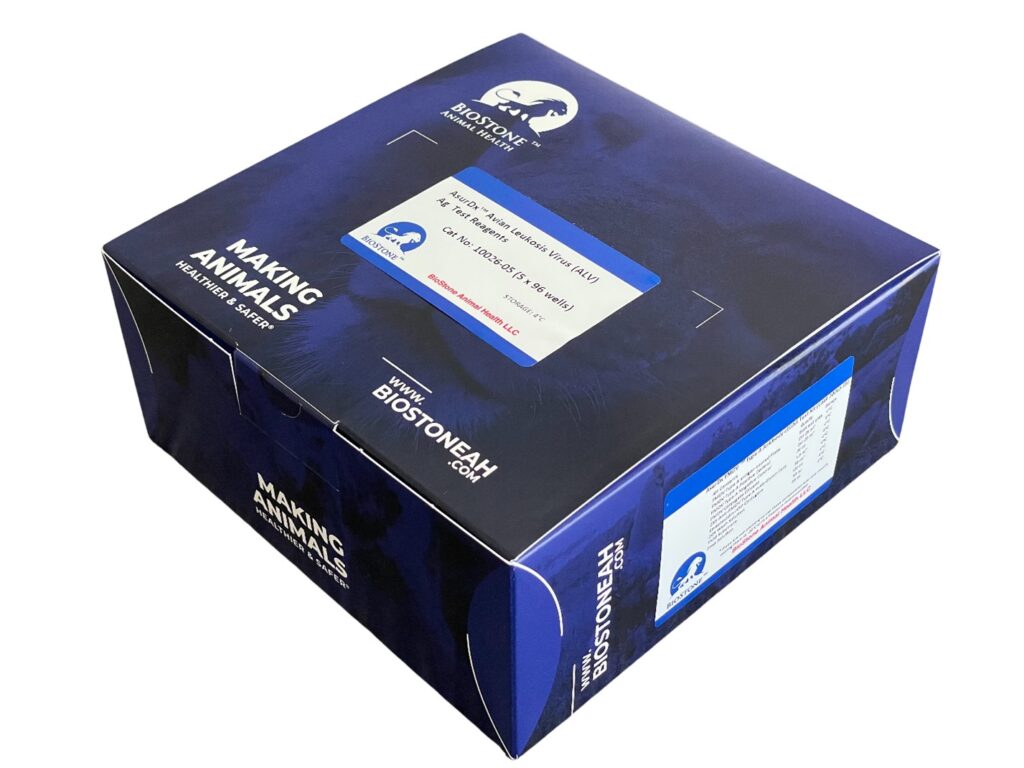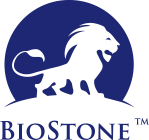AsurDx™ Avian Leukosis Virus (ALV) Ag Antibody Test Kit
The AsurDxTM Avian Leukosis Virus (ALV) Ag Test Kitis designed for the detection of avian leukosis/sarcoma virus (ALV) p27 protein, an antigen (Ag) common to all subgroups of ALV, including endogenous viruses.

Feature
- Detects ALV antigen p27 in chicken egg white and cloacal swabs;
- Procedures last less than 95 minutes;
- Provides a simple, rapid, sensitive and cost-effective enzyme-based immunoassay (ELISA) screening method
*Availability/Distribution: Product is designed and developed by BioStone US Texas headquarter and manufactured/assembled by BioStone oversea subsidiaries or partners. Currently, the product is only available outside of the USA. Regulatory requirements vary by oversea countries; the product may not be available in your geographic area.
Specification
| Method | Colorimetric sandwich ELISA |
| Coated Antigen | Anti-ALV p27 Ab-coated Plate |
| Incubation Time | 95 minutes |
| Storage | At least 12 months |
| Specificity | ALV p27 antigen |
Order Information
| Catalog Number | 10026-02 | 10026-05 |
| Plates | 2 plates | 5 plates |
| Reactions | 192 | 480 |
| Plate Format | 12 X 8-well strips | 12 X 8-well strips |
About Disease
Under natural conditions, lymphoid leukosis has been the most common form of the leukosis/sarcoma group of diseases seen in chicken flocks, although in the 1990s myeloid leukosis become prevalent in meat-type chickens. ALV viruses have similar physical and molecular characteristics and share a common group-specific antigen (p27). Detection of the major antigen (p27) present in the core of leukosis/sarcoma viruses forms the basis of several diagnostic tests.
Lymphoid leukosis occurs naturally only in chickens. Tumor mortality commonly accounts for ~1%–2% of birds, with occasional losses of ≥20%. Subclinical infection, to which most flocks are subject, decreases several important performance traits, including egg production and quality. Infection can occur horizontally from bird to bird by direct or indirect contact, or vertically from an infected hen to her eggs as virus is shed into the albumin of the egg.
